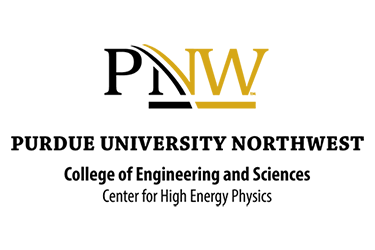Center for High Energy Physics
The PNW Center for High Energy Physics utilizes the world’s highest energy particle accelerator at CERN and advanced detectors, such as CMS, to study the fundamental particles that make up our universe.

PNW designates new Center for High Energy Physics
Purdue University Northwest (PNW) has designated a new Center for High Energy Physics (CHEP) that will include the university’s particle and high energy physics research and community outreach programs.
Core Research Program – CMS @CERN
The HEP research group at PNW, consists of Dr. Neeti Parashar, the Principal Investigator and Dr. James Dolen, the co-Principal Investigator, NSF funded postdoctoral research associate, and PNW students. We collaborate on experiments at both Fermi National Accelerator Laboratory (Fermilab) and at the European Organization in Nuclear Research (CERN). Our group is currently performing research on searching for new particles produced in proton-proton collisions at the Large Hadron Collider (LHC), and working to build new silicon-based particle detectors.
Students working in our group helped to build the silicon pixel detector, which is currently operating at the Compact Muon Solenoid (CMS) experiment at CERN. They have also analyzed data collected by CMS and contributed to particle property measurements and searches.
Education and Outreach – PNW QuarkNet Center
Our group runs the PNW QuarkNet center, one of only three in the state of Indiana. The QuarkNet center hosts the CMS Masterclass every year. At this event students from local high schools in Northwest Indiana visit the PNW campus and perform hands-on activities analyzing real data collected by the CMS experiment at CERN.
Students then video conference with scientists from Fermilab and CERN to present their results. The PNW QuarkNet center also hosts local high school teachers for a workshop, dedicated to teaching concepts of modern research and particle physics in the classroom.